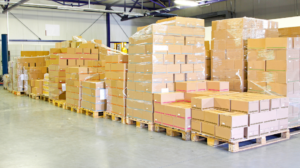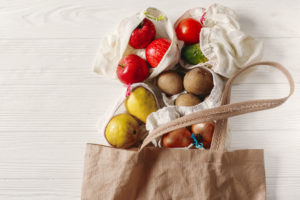National Plastics Plan tackles problematic plastic
The Australian Government has released its National Plastics Plan 2021, proposing a wide range of APCO-led initiatives to fight plastic waste by reducing plastic packaging, and improving recycling and recycled content uptake in the Australian marketplace. The multi-pronged approach includes plastic-free beaches, new labelling guidelines, eliminating expanded polystyrene consumer packaging fill and food and beverage containers, and greater consistency in kerbside bin collections.
The Australasian Recycling Label (ARL) was recognised as a key consumer recycling education tool, with the government committing to work with industry to apply the ARL on at least 80% of supermarket products by December 2023. The ARL will also be rolled out on business-to-business packaging.
The National Plastics Plan highlights APCO’s Recycled Content Pledge Project, which will see major brands publicly commit to transitioning a percentage of their packaging from virgin to recycled material. The project will help to drive the critical market demand for recycled materials that will enable Australia to meet the 2025 National Packaging Targets and help to stimulate major investment in packaging manufacturing and recycling processes for the future.
Australia’s 2025 National Packaging Targets were another key feature of the approach to tackling plastics, particularly the phasing out of all problematic and unnecessary single-use plastic packaging by 2025. Under the new plan, Australia will phase out expanded polystyrene (EPS) from loose packaging fill and moulded packaging in consumer packaging, EPS consumer food and beverage containers, and PVC packaging labels.
APCO CEO Brooke Donnelly said, “One year on since the 2020 National Plastics Summit in Canberra, it’s fantastic to see how much progress has already been delivered on the plastic packaging issue. Australia has a huge task ahead of us to meet the 2025 National Packaging Targets and, in particular, ensure 70% of our plastic packaging is recycled for future use. However, as today’s new National Plastic Plan demonstrates, there is a rich program of work being rolled out by APCO, our members, and our partners in government and the community that will get the job done and deliver a new and sustainable approach to plastic here in Australia.”
The Waste Management and Resource Recovery Association of Australia (WMRR) says the highly anticipated National Plastics Plan is not just a step in the right direction, it is also the furthest the federal government has ever gone in driving a closed-loop supply chain.
“WMRR congratulates the federal government for its leadership in this significant issue — plastic waste,” WMRR CEO Gayle Sloan said. “This is the first time the federal government has stepped into the material space and it is encouraging that they are leading conversations which are starting to shift towards focusing on production and design, both of which are absolutely key to creating a true circular economy.
“This plan represents an opportunity for all Australian jurisdictions to work together on harmonised initiatives that will give Australia the best chance of working with the community to meet our national targets and aspirations, and there are interesting elements in the plan such as plastic-free beaches. The Australian community is one in its ambition to reduce the use of unnecessary plastics and having national cooperation and consistency will drive this agenda forward, ideally eliminating confusion,” Sloan added.
“The penny has certainly dropped in many areas and we look forward to continued engagement with the government on how all stakeholders — manufacturers, the waste and resource recovery industry, governments, consumers and more — can come to the table to create a true circular economy across all material streams and not just a successful closed-loop model.
“These high-level actions announced today are positive and welcome, but this is just the start of the journey; the details that will help us meet our goals and targets will need to be ironed out and our essential industry looks forward to working with all levels of government and other supply chain stakeholders as we strive ahead in our quest to build a sustainable Australia,” Sloan said.



